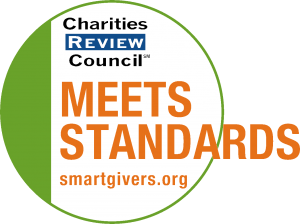Impact and Programs
Accomplishments
In 2023, Family Pathways distributed1,673,080 meals. These meals were through mass food distribution events.169,403 meals through 5,699 visits to our Mobile Food Shelf. 550 children received the nutrition they needed from 83,888 meals provided by our Backpack Program. Meals were also provided by our Doorstep Delivery program and the food shelves themselves. Aging Services staff and volunteers provided support to 163 caregivers, homemaking services to 227 older adults, doorstep delivery to 149 individuals, and education and outreach to 421 people in our community. 136 Adults and children found shelter at Black Dog Hill Emergency Shelter in 2023. Our community advocates supported 3,233 people finding safety self-sufficiency after domestic violence sexual assault. also made 4,732 follow up calls to seeking help. Family Pathways Parenting Time services provided 5,078 hours of supervision to families across the counties we serve through virtual visits, in-person visits and safe exchange which helps parents and children to stay connected.
Current Goals
This year, Family Pathways is focusing organizationally on increasing environmental stewardship with existing programs and new collaborations. Family Pathways is implementing a revised process for the recruitment, application, and onboarding of Board Members to increase diversity and inclusion. Family Pathways plans to focus on an organizational strategy that prioritizes employee well-being by developing a Wellness Committee to enhance both physical and mental health, while simultaneously addressing pay equity concerns to attract and maintain a high-quality workforce.
Family Pathways’ Social Enterprise department is creating partnerships with clean energy organizations to help distribute environmentally healthier resources to low-income families, increasing recycling services of metals and clothing, and completing facility energy audits with partners.
The primary goals of the Food Access department this year are transitioning all 9 Food Shelves to Super Shelf designation, increasing Food Rescue agreements to reduce food waste, and advancing technology through the implementation of an electronic client database.
The Domestic Violence and Sexual Assault Services’ main goals this year are to expand community engagement and client experience through implementation of Community Advocacy Lead and Parenting Time Lead positions, and to enhance the safety and security of the shelter property by making improvements to security cameras, outdoor space, commercial appliances, and adding shelter client transport vehicle.
The Aging Services Department is focusing on the re-establishment of Alzheimer’s and other Dementia community organizations and education. Aging Services also plans to add ALS expert trainings for Caregiver Consultants and expand its Sunshine call program to reduce senior isolation and connectedness.
Community or Constituency Served
Family Pathways’ support services provides healthy food access, domestic and sexual violence prevention and victim services, supervised visitation, and services for older adults and caregivers.
Geographic Area Served
Family Pathways serves the communities of: City of Forest Lake, Cloquet, Chisago, Isanti, Kanabec, Mille Lacs, and Pine Counties in Minnesota and Polk County in Wisconsin.
